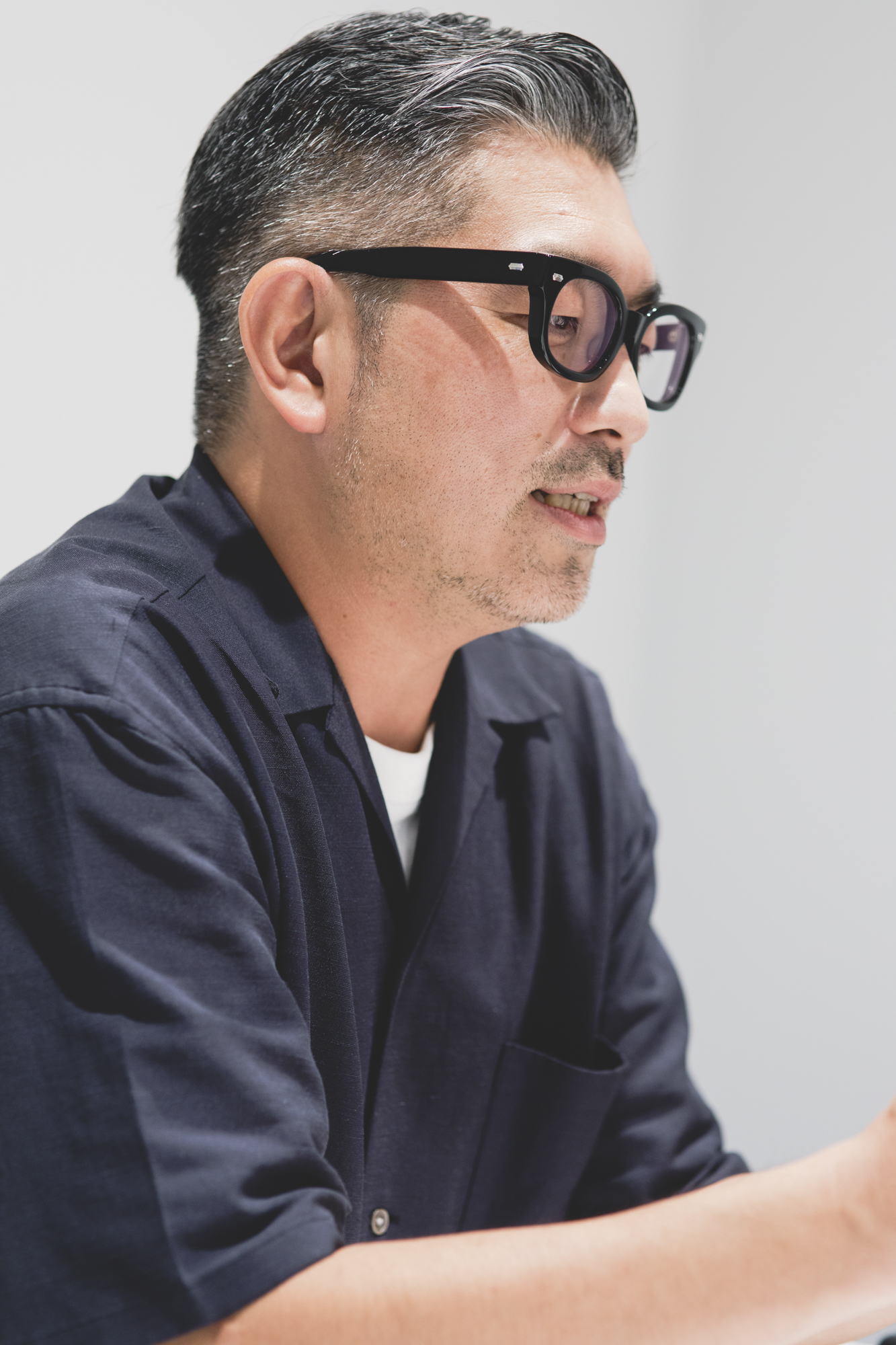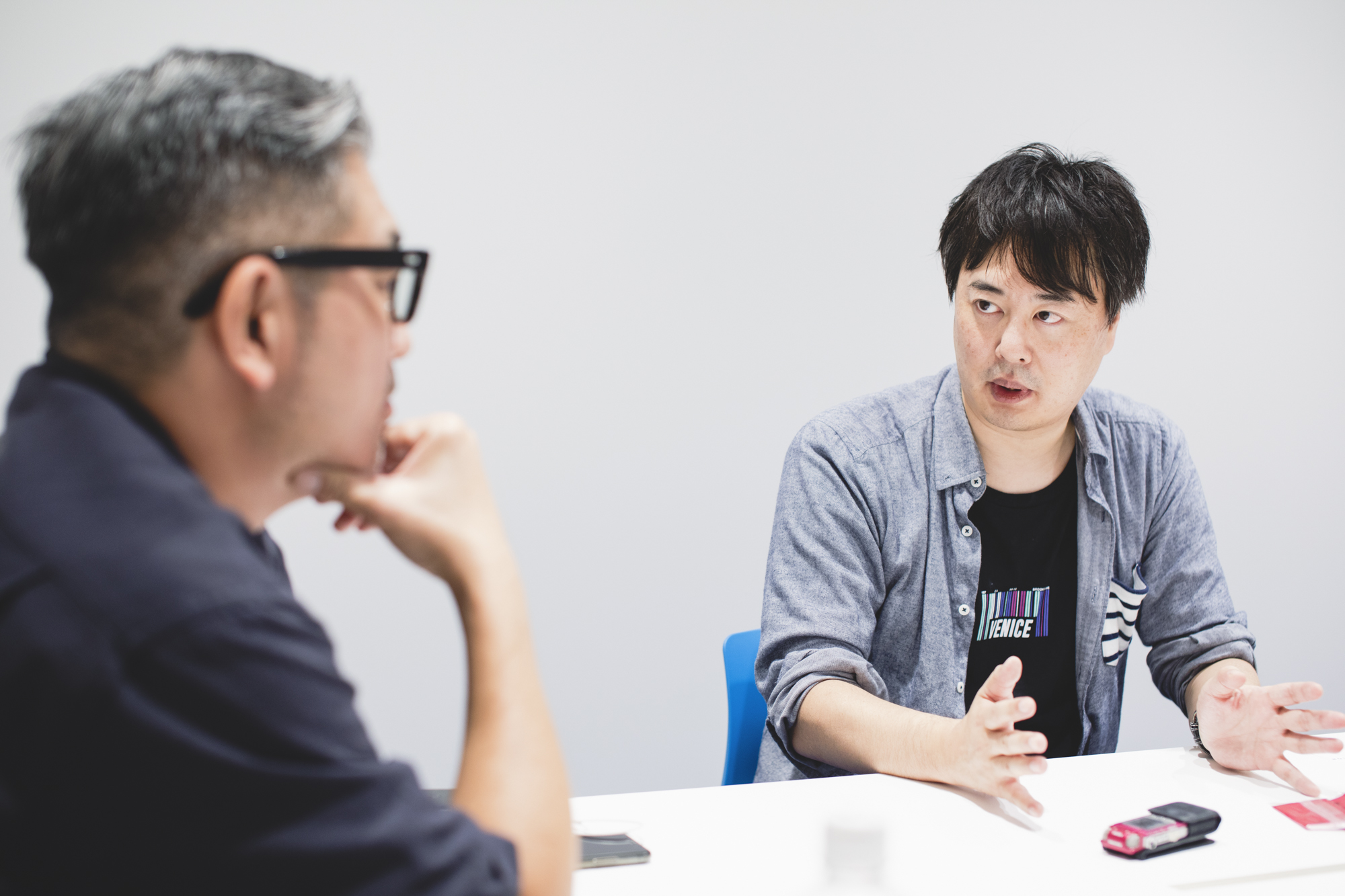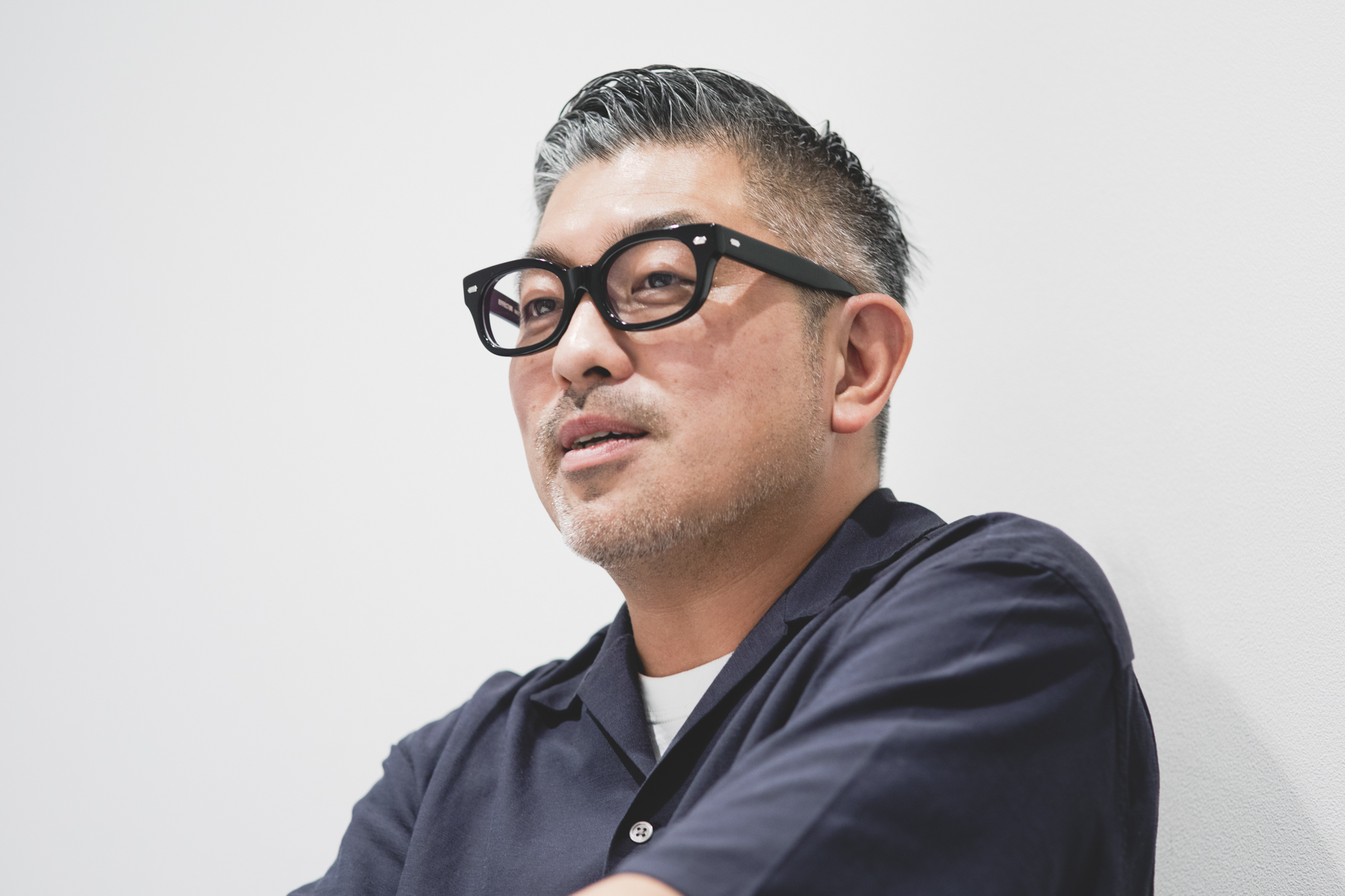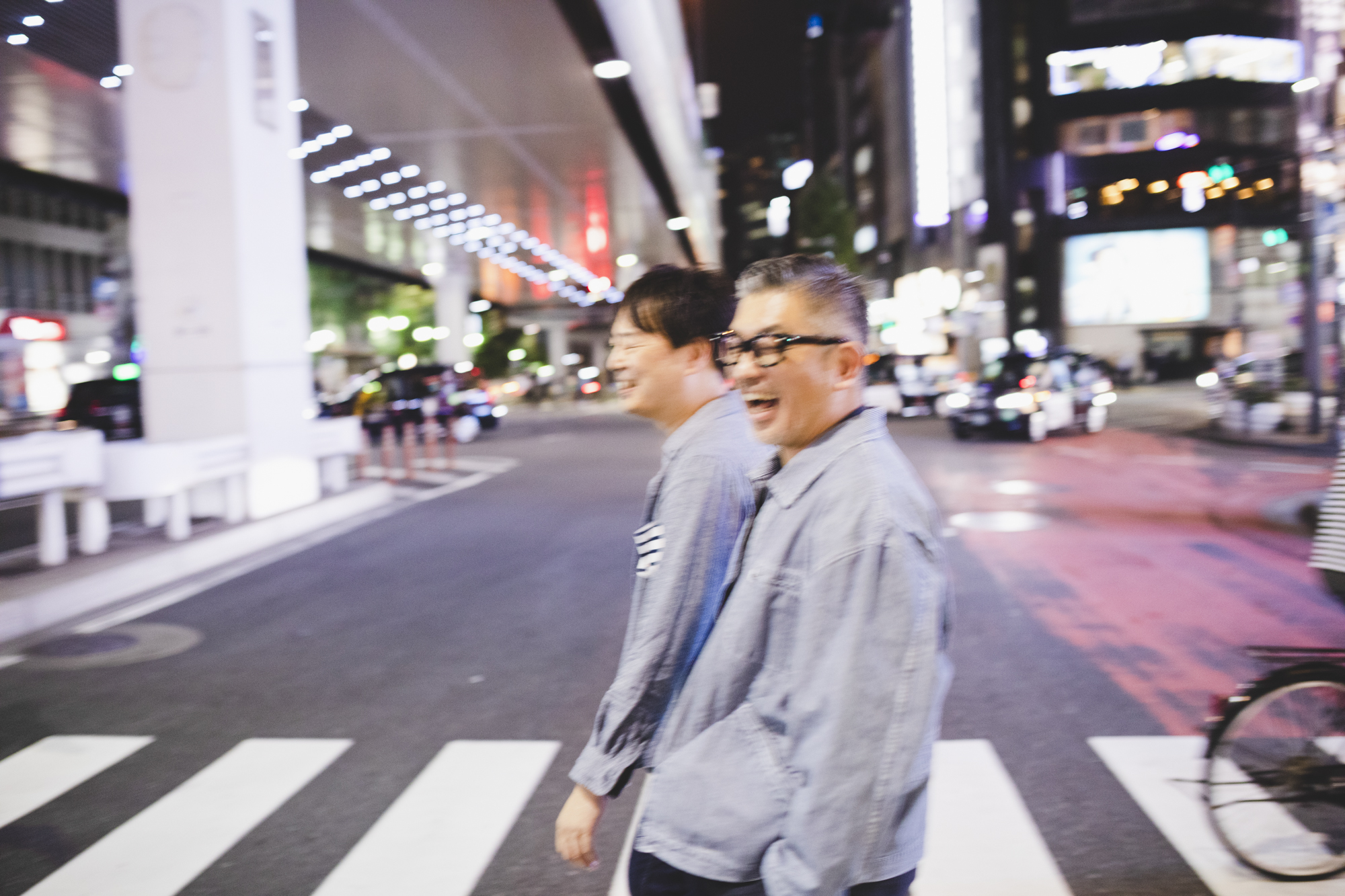Director Keisuke Toyoshima’s movies and TV dramas span a wide range of themes including horror, history, and idols. His first documentary film, “Mishima: The Last Debate,” is currently a long-running hit. Perhaps one reason the film reached such a wide audience is that it focuses on the passion of the debate, making for exciting content. This can be attributed to Toyoshima’s ability to deliver entertainment regardless of the subject at hand. In this interview, Toyoshima talks with friend and screenwriter Koji Tokuo about how they approach different topics that come with each project to create entertainment.
Even if the audience doesn’t understand the debate, they can see the passion and respect
——So, I heard that at the time you got the offer for “Mishima: The Last Debate,” you didn’t know much about Yukio Mishima.
Keisuke Toyoshima: I didn’t know anything about him. A film critic, Shigehiko Hasumi, had made fun of Yukio Mishima, so I’d never read his work. I was a Hasumi devotee in my college days. (laughs)
——Why did you accept a job on a topic you “didn’t know anything about?”
Toyoshima: The producer, Tone, is a classmate from college. We were born the year after Mishima committed suicide, so we’re from a generation that has never experienced Mishima or the passion behind the “seiji no kisetsu”
[season of politics]. Tone thought that he wanted to learn more about the topic with a director of the same generation, so he reached out to me. Apparently, he thought that since I’d studied for exams and got into the University of Tokyo, something could take shape as long as he made me study. (laughs) But turning Yukio Mishima’s biography into a film is too big of a challenge to tackle. So for this documentary, we dug up a May 13th, 1969 debate from the TBS archives between Yukio Mishima and a group of students from the University of Tokyo that was a little under 90 minutes long. I thought that if we could bring that to light, we might stand a chance.
——How did you decide on a conclusion (theme)?
Toyoshima: I had a tentative structure in mind, but I thought the challenge would be to see what I could get from the interviews with 13 people connected to Yukio Mishima. What was interesting to me about the interviews was that the people who had met Yukio Mishima were, at the end of the day, extremely fascinated by him and are still obsessed with him. I realized partway through making the film that we were shooting a documentary about those people. The people who were taken with Yukio Mishima are also subjects of this film. As for the conclusion, I kept asking myself, “Is there a point in releasing this film in 2020?” If you examine the content of the debate closely, the theme should be, “What kind of relationship should we have with the emperor?” But this is ideologically quite difficult, so the film doesn’t reach a conclusion. Instead, it compromises with “Debate, discussion, passion, and respect.” Although I know it’s a bit of a cop-out.
——Even though I couldn’t fully understand the content of the debates, I was definitely excited to see Mishima and the students being respectful to each other while verbally sparring.
Toyoshima: I wanted to make a movie like “Outrage” or “New Battles Without Honor and Humanity,” where the audience walks out of the movie theater with a swagger. A work that for some reason, inspires you to feel like, “I have to take action today!” We felt a sense of distance from our subjects, and we weren’t using this debate to deliver our own message, so we settled for a fluffy conclusion. I think that’s why so many people watched this film.
On inside jokes with the audience and how to tackle a new topic
Toyoshima: A lot of people who make films and dramas deal with new topics for every film. But with Mishima, I felt like I was dealt a tough hand. Tokuo, you were writing and directing for your own theater group when you were suddenly invited to work on theater productions with idols, right? When was that?
Koji Tokuo: I was invited for the first time in 2010. The gig was screenwriting and direction for PLAYZONE, starring Tsubasa Imai. It was quite a shock. I’d had such a hard time getting people to come to my smaller productions, but at Aoyama Theater, which holds 1,200 people, all 40 performances were completely packed. I learned at that time that there are certain kinds of performances that fans in particular can appreciate.
Toyoshima: You mean the performances are geared towards fans?
Tokuo: For example, if I thought of a funny scene, 500 people would laugh, but if one of the performers did an impression of someone senior to them at their agency, 1200 people would burst into laughter. Even if the former is something that’d be funny even to non-fans, the latter makes more people happy in a theater production that’s geared towards fans, so I realized that I had to properly think about that kind of direction as well.
Toyoshima: That’s interesting! What you said is very on point. AKB48’s “Majisuka Gakuen” had a unique culture of giving fans what they wanted, too. I joined partway through the show, but other than Atsuko Maeda, the rest of the girls played characters that were nicknames given to them by Yasushi Akimoto. For example, Minami Minegishi’s character’s name, “Shaku,” originates from the fact that Minegishi herself wanted “shaku” [screen time] at variety shows.
Tokuo: Right, so they included some inside jokes for members and fans to share.
——When you take on a subject you aren’t familiar with, what kind of research do you do?
Tokuo: It’s difficult to take on a full-fledged historical drama or mystery. But even when that’s not the case, there are a lot of times I deal with areas I’m unfamiliar with, so I always do my research when that happens. It’s fun to become a bridge into a world that the viewer doesn’t know, either.
Toyoshima: The historical drama that comes to mind is “A Courtesan with Flowered Skin.” I’m not a fan of historical dramas, so this was about as unfamiliar to me as Mishima. But I was excited to have the rare experience of shooting a historical drama in Uzumasa [region in Kyoto]. I actually get the most fired up when I get to do something I’m not knowledgeable in. That was one of the reasons I took on Mishima. It was definitely going to be a painful experience, but I can’t resist the excitement of opening new doors.
Tokuo: I think I have an inquisitive mind that can turn the things I research into knowledge. I can sit at my desk for hours without getting tired, and I enjoy interviewing people. For “My Housekeeper Nagisa-san,” I interviewed a pharmaceutical company and a housekeeping service. When I was young, I didn’t have many opportunities to interview people, but I’m doing more and more interviews every year. I think it’s probably because there’s been an increase in complicated jobs that you can’t write about unless you conduct interviews. I have a background in mathematics, and back when I didn’t have work, I was invited to help think of ideas for an NHK drama called “Hard Nuts,” in which a college student played by Ai Hashimoto uses math to solve difficult cases. I came up with math tricks partially on my own and then went to the supervising university professor to ask questions on what to do.
Toyoshima: When you wrote Ossan’s love, did you do interviews or research on LGBT and BL [abbreviation for “Boy’s Love,” a genre of media featuring homoerotic relationships between male characters] topics?
Tokuo: No, from the very beginning with that show, I wanted to create a drama where an “ossan” [middle-aged man] was dedicated to the kind of standard love stories you see depicted in trendy primetime dramas and shojo mangas.
——When writing a romantic drama between two middle aged-men, what were you careful of?
Tokuo: This applies to every drama, but I wanted to avoid any depictions that would be hurtful to viewers. I tried to write about the universal troubles of love while making sure to drive home the point that the funny part isn’t that two middle-aged men are in love, but the bittersweetness of making mistakes in love.
On “sympathy” and “surprise at the unknown” in entertainment
——Shows like “Ossan’s Love” and “My Housekeeper Nagisa-san” cover topics that aren’t often seen in television dramas, but I’d like to link this to current trends. Are you two trying to create sympathy? Or is it the surprise at the unknown?
Tokuo: I often see people saying that they can’t sympathize with the protagonist, but sympathy is a funny word. There’s a lot of interesting work out there that you can’t sympathize with at all. Or even if the main character is a villain, there’s a way to enjoy something by looking at it like a circus act and keeping a relativist view. There isn’t always a need to put yourself in the shoes of the protagonist, but sympathy has become a standard of value.
Toyoshima: Sympathy is like a rationalization——that as long as you include that, it’s fine. But sympathy is phony, an almighty theory that everyone can agree on. But the shows that actually become hits aren’t shooting for that.
Tokuo: Keisuke and I aren’t producers, so we don’t think about whether something will be a hit or not. We don’t have the ability to figure out what we have to do to ensure a hit in the first place. Of course, while we’re in the process of making something, it crosses our minds that people might want to see something like this or that, but ultimately, we spend a lot of time thinking about what we want to make, and the work itself.
Toyoshima: Although in the end, I always want it to become a hit. (laughs)
——This is my last question. Why do you think “Mishima: The Last Debate” was so popular?
Toyoshima: It’s a bit of a mystery, isn’t it? For the younger generation, I think it was important that it didn’t end with a bang or any ideology. It’s also interesting that depending on the viewers’ generation, they can see the film differently. For some, it brings back painful memories of their youth, while others are interested in it as an unknown world.
So it’s both “sympathy” and “surprise at the unknown.”
Toyoshima: Also, it stirs up various feelings, like intellectual insecurity, or the feeling of, “I have to learn about this now.” There were a lot of people writing their impressions about the debate on social media by prefacing it with “I couldn’t understand half of it but…”
Tokuo: I wonder if the film satisfied their intellectual curiosity.
Toyoshima: “Mishima: The Last Debate” is the first film I’ve made that a lot of people watched. It’s a documentary where the source footage itself is powerful, so as someone who’s always made fiction, I feel a bit disappointed or mixed about it. But there’s nothing like the joy of having many people see your work.
Tokuo: That’s true. The worst is when you don’t get any reactions at all.
Toyoshima: But I had a more difficult time with “Mishima: The Last Debate” after we finished making it. Even though I knew it was coming. I create fiction with my own interpretation, so I can talk all about the work. But with this Mishima film, I only know what I learned while making the film, so I can’t really compete with his experts and fans. Every time there’s an event or a teach-in, I learn something. (laughs)
Keisuke Toyoshima
Keisuke Toyoshima was born in 1971 in Shizuoka prefecture. After graduating from the University of Tokyo Department of Humanities and Social Sciences with a major in Culture and Representation, he studied at the American Film Institute (AFI) in Los Angeles. After returning to Japan, he directed his debut film, “Tales of Terror from Tokyo and All Over Japan” (2003), and after working on films and dramas ranging from idols TV shows to comedies, he directed “Mishima: The Last Debate.” Other recent works include “Youkai Sharehouse” and “Kakenai!?”
https://twitter.com/toyoshima1113
Koji Tokuo
Koji Tokuo was born in 1979 in Shizuoka prefecture. A graduate of Keio University, he was a member of the university theater club. In addition to writing and directing theater productions for his theater group, Tokuo Gumi, he’s written for many films and TV dramas. Some recent shows he has written for include “Ossan’s Love” (TV Asahi), “Miss Jikocho” (NHK), and “My Housekeeper Nagisa-san” (TBS TV).
https://twitter.com/tokuo
Photography Ryu Maeda




